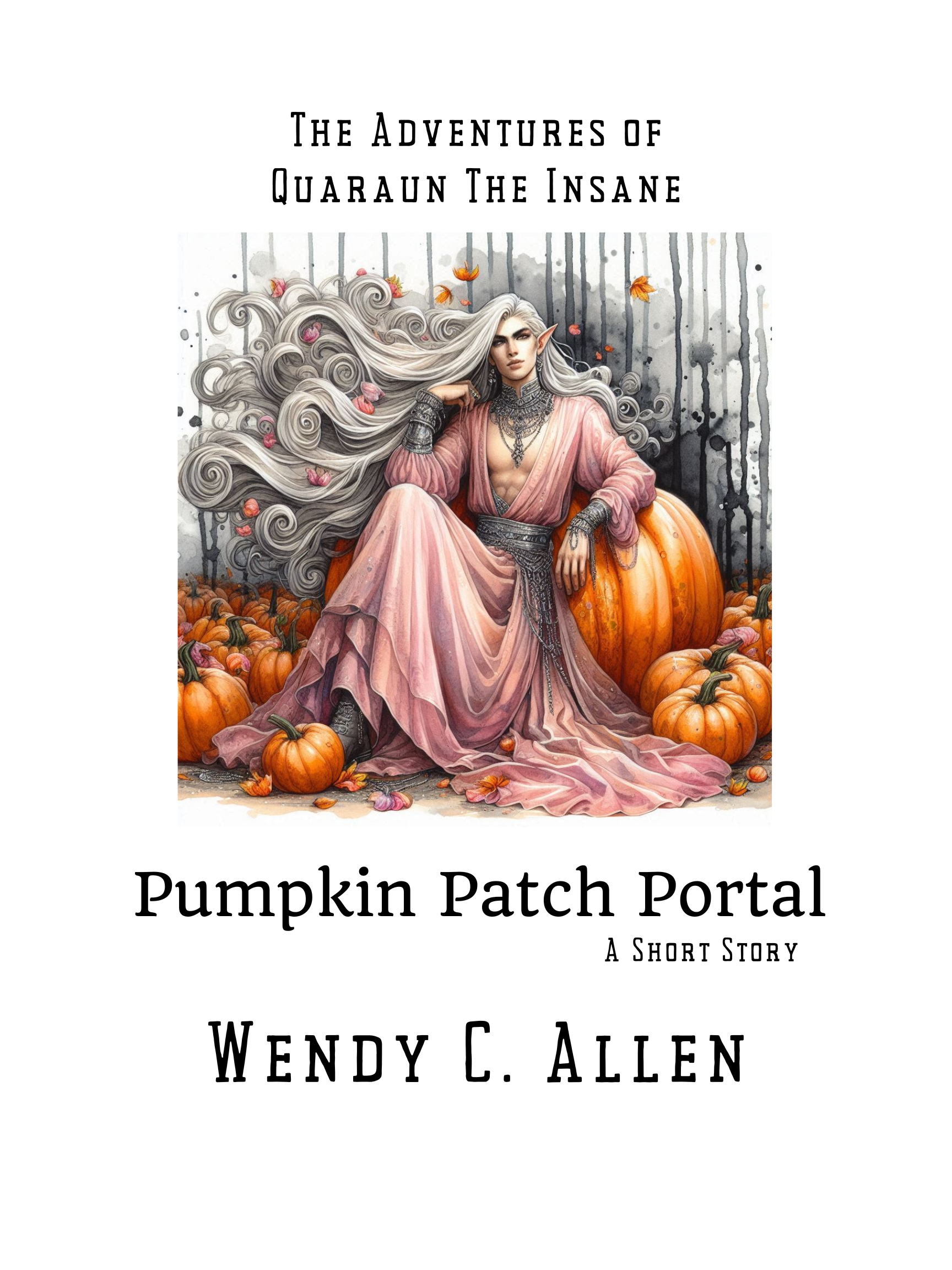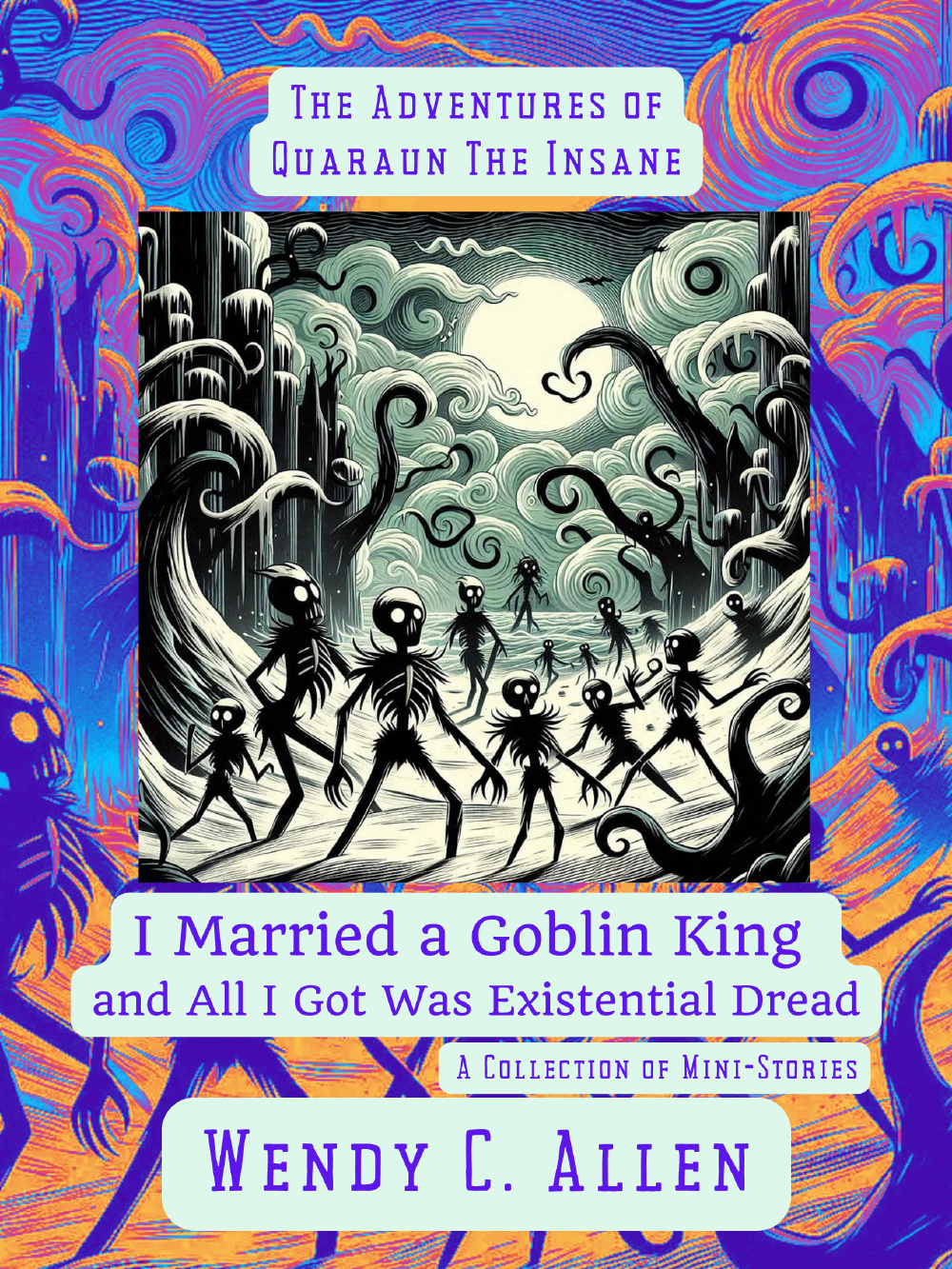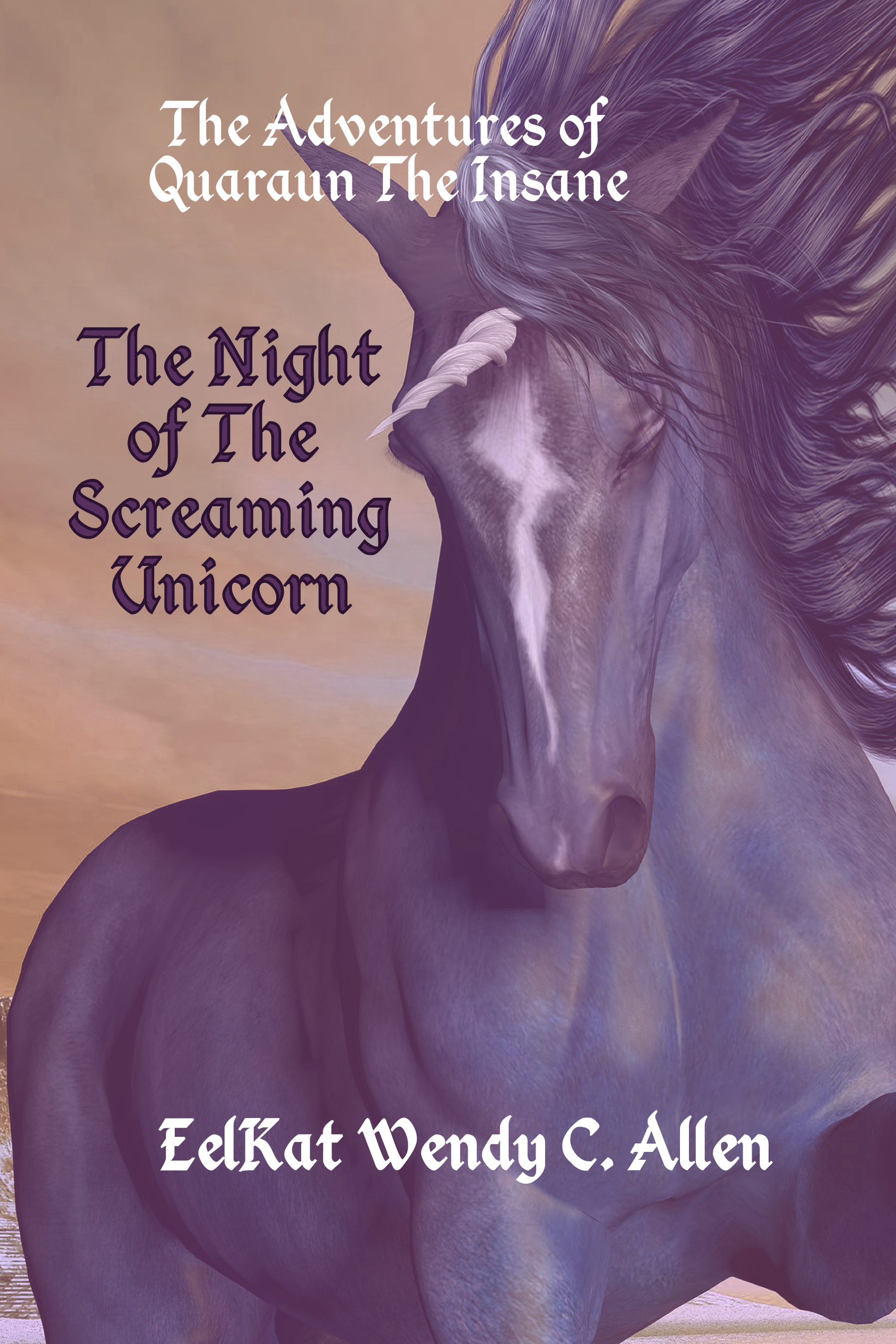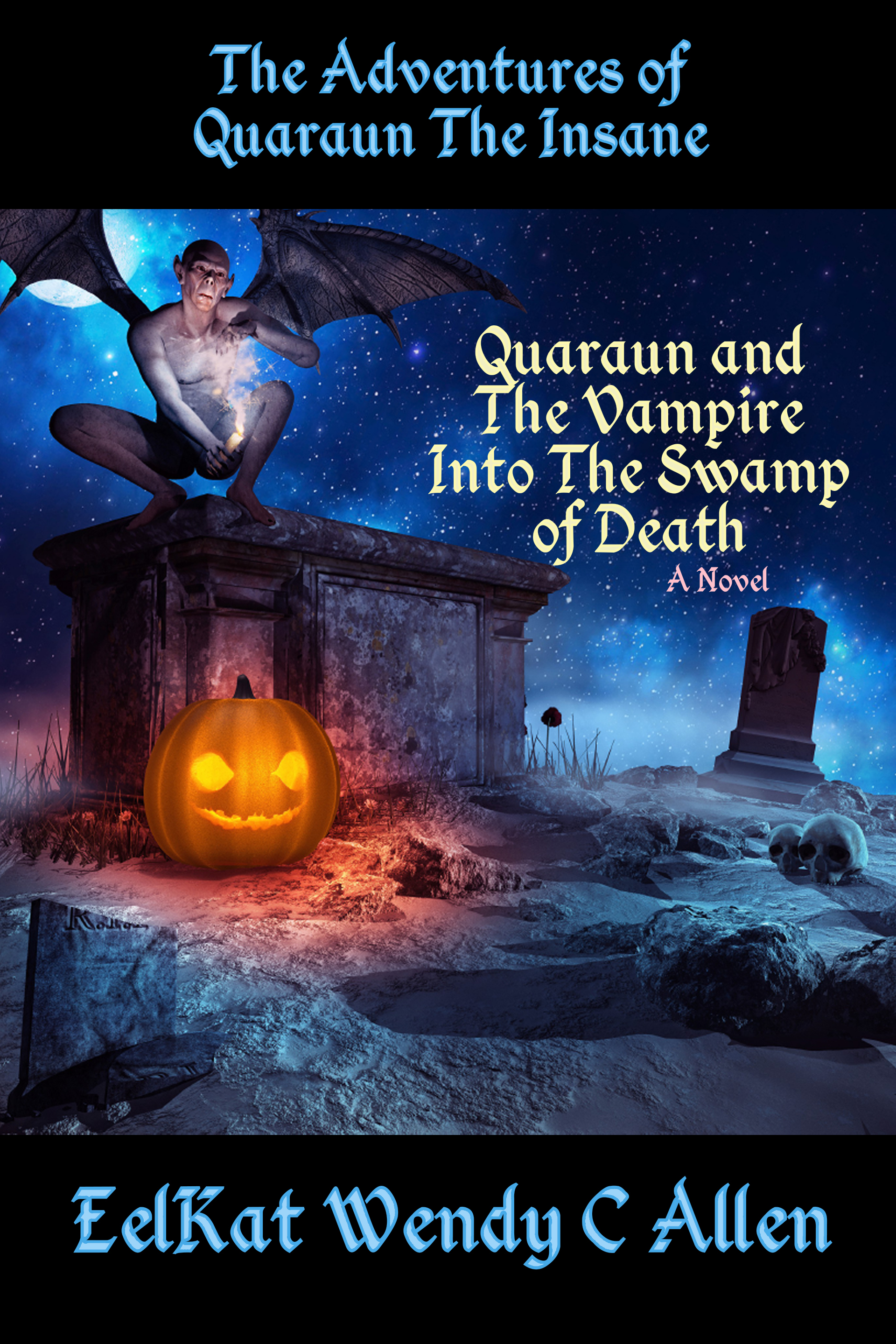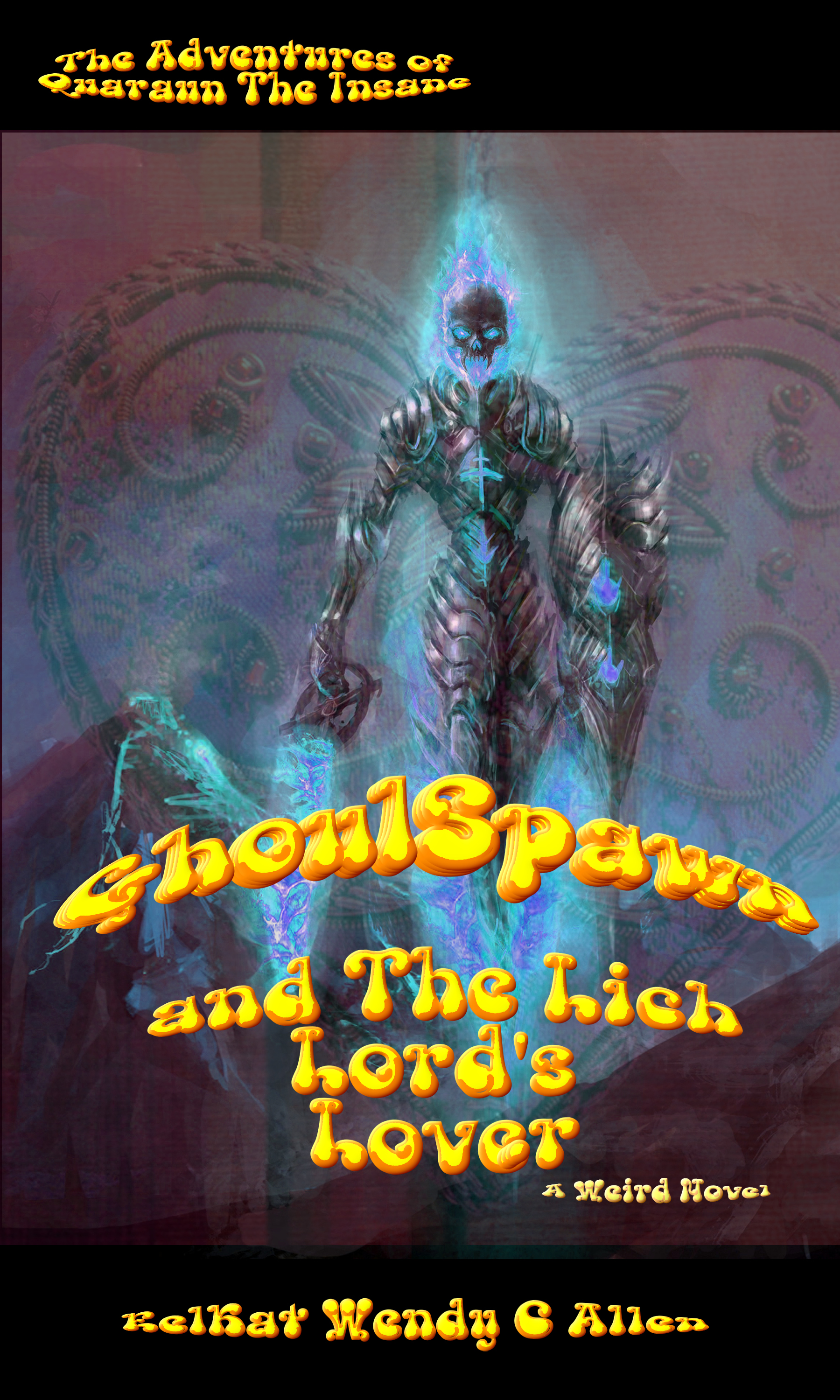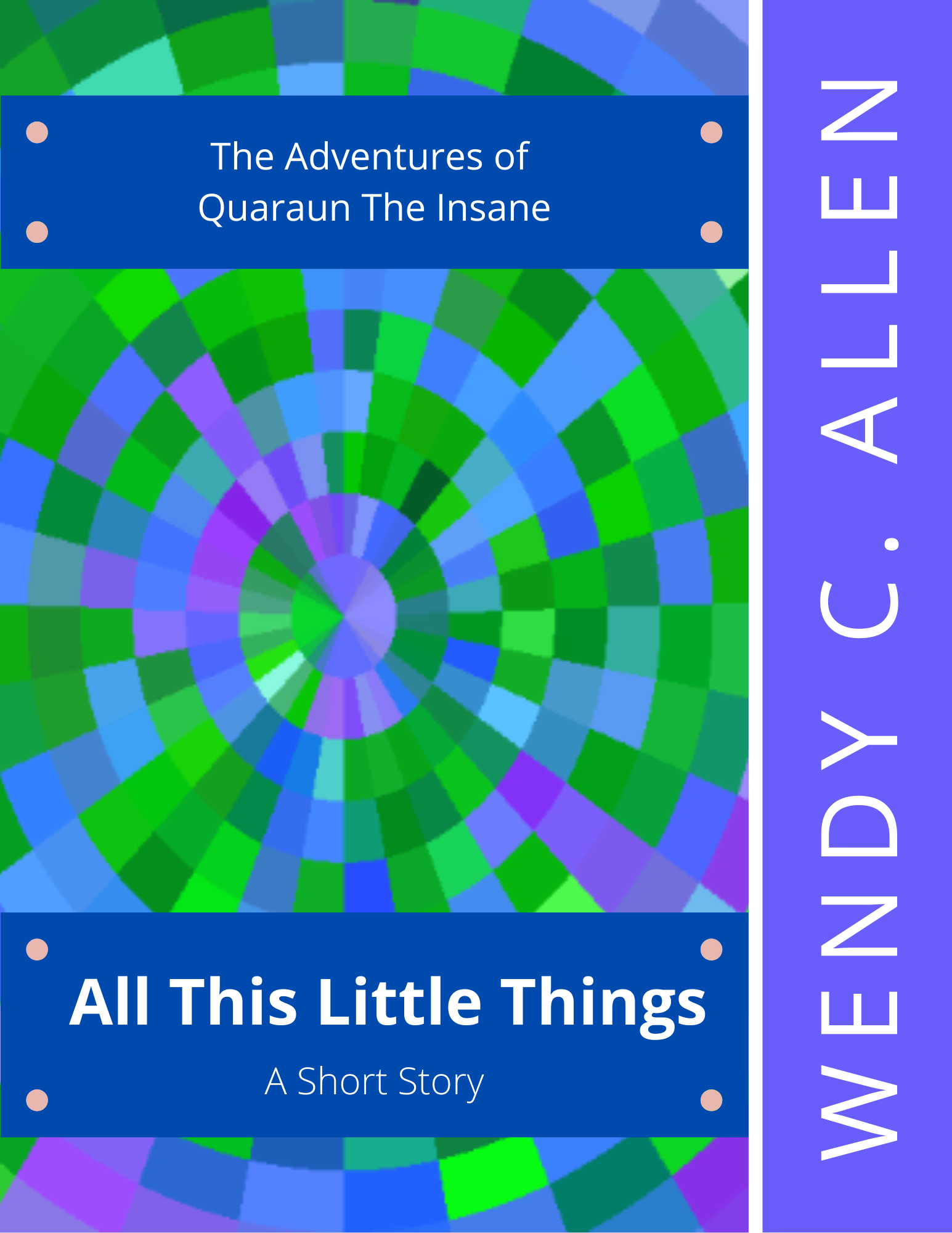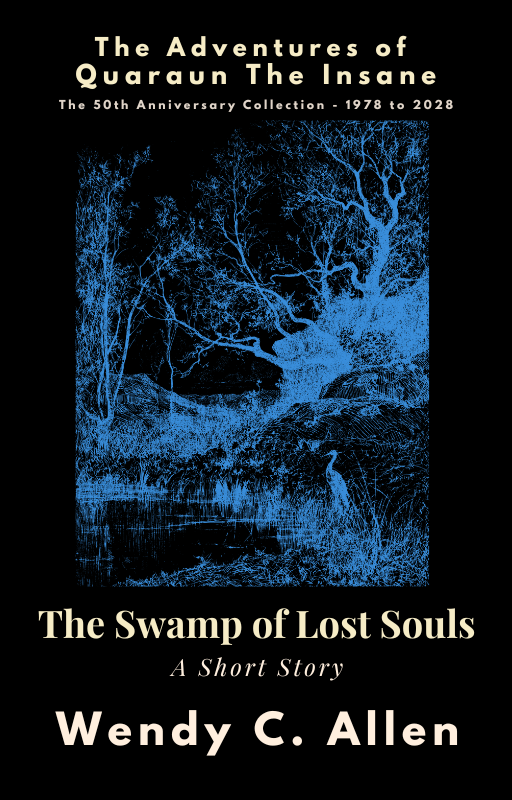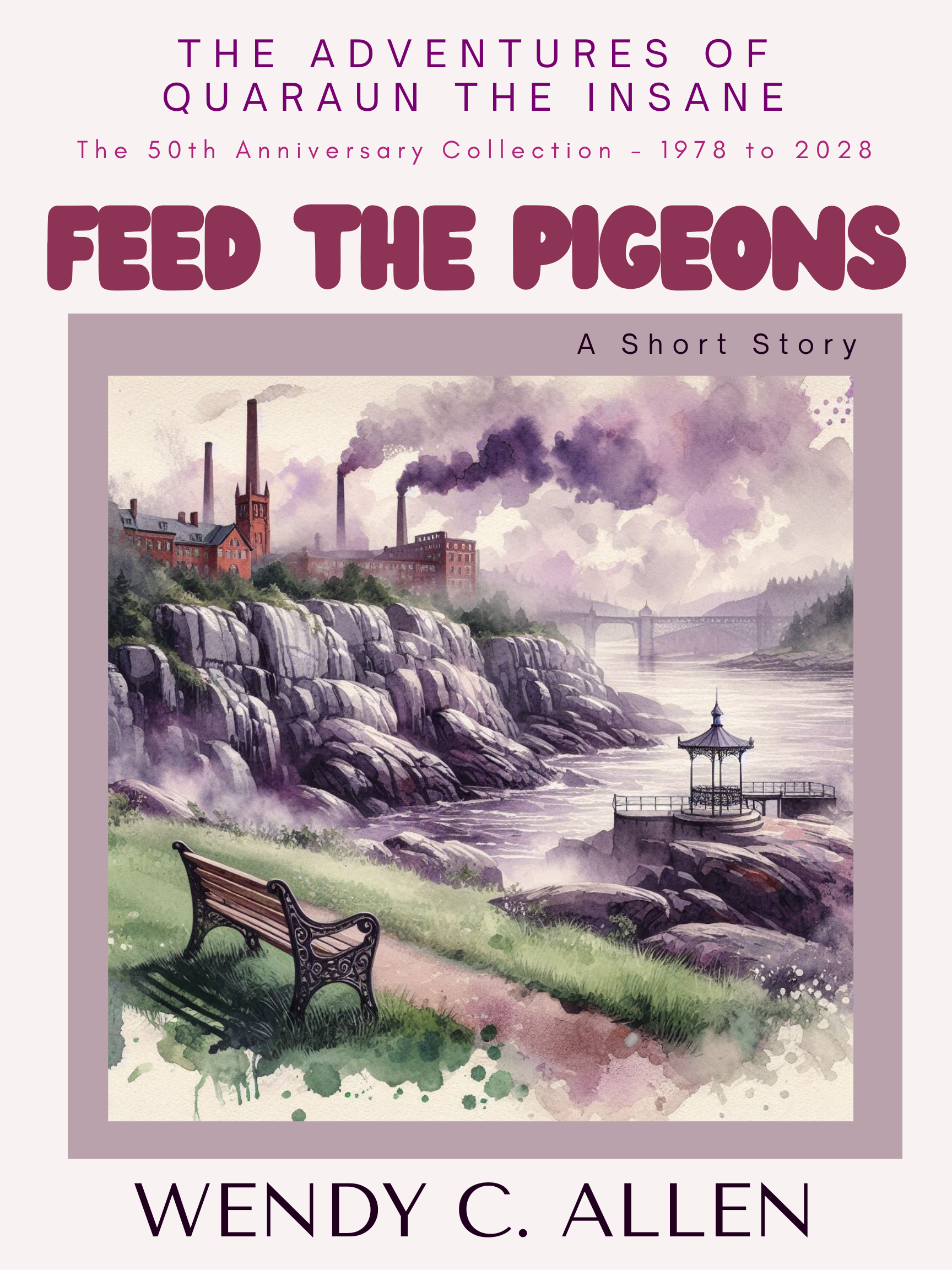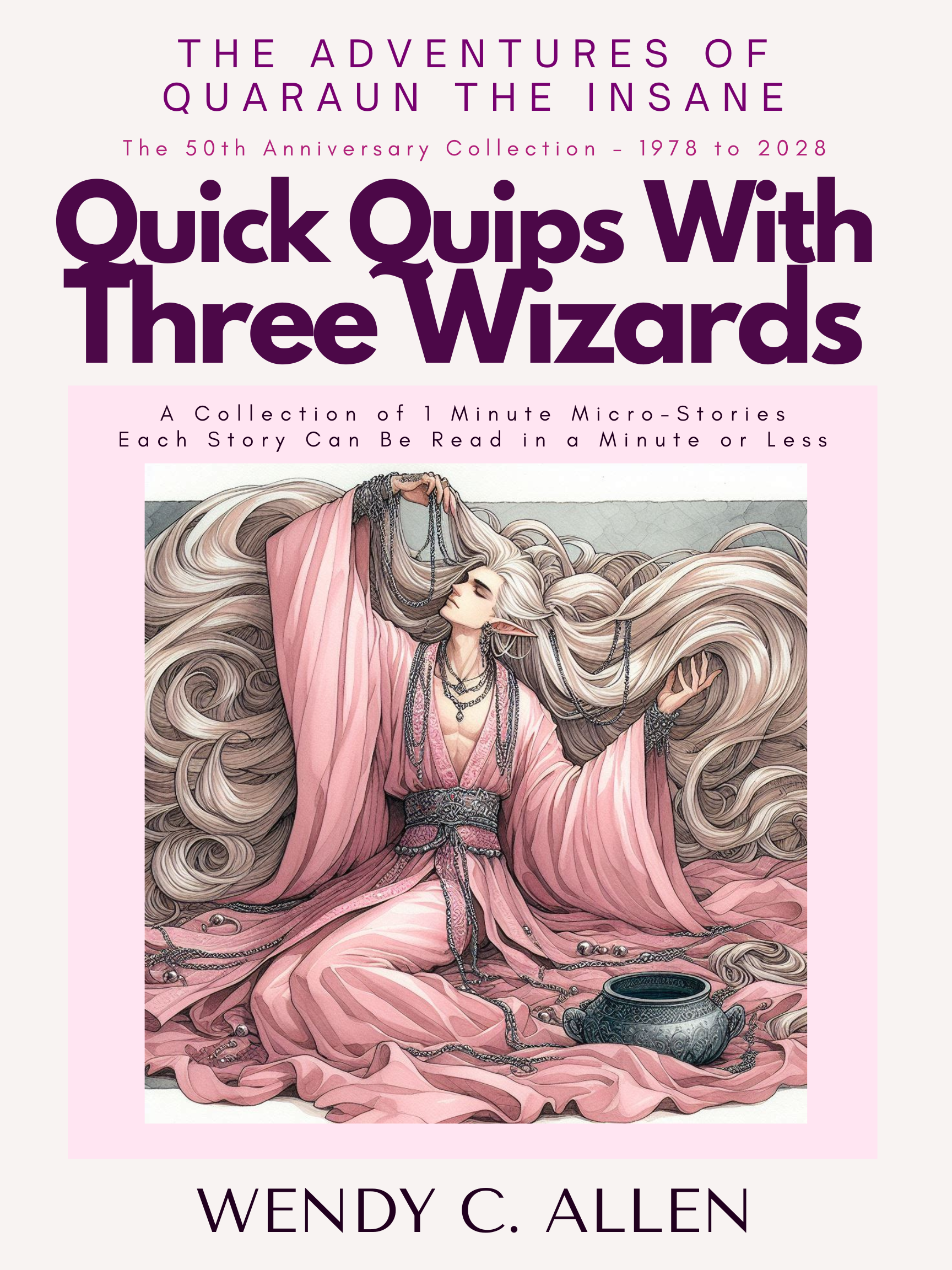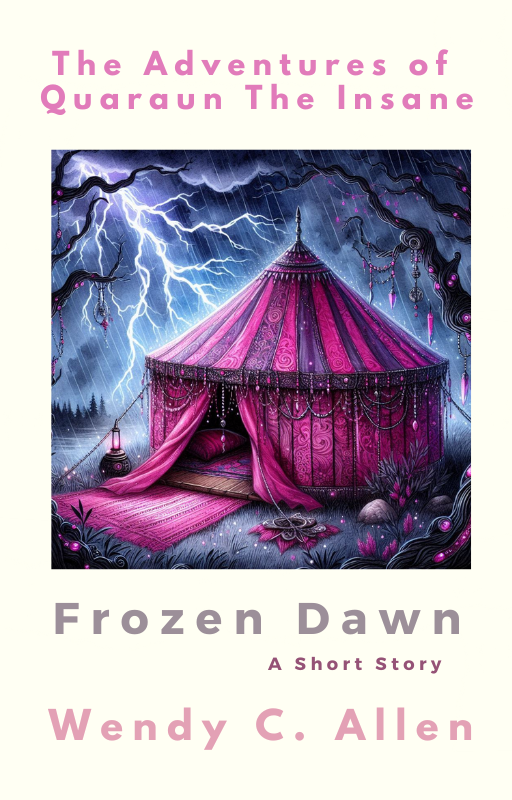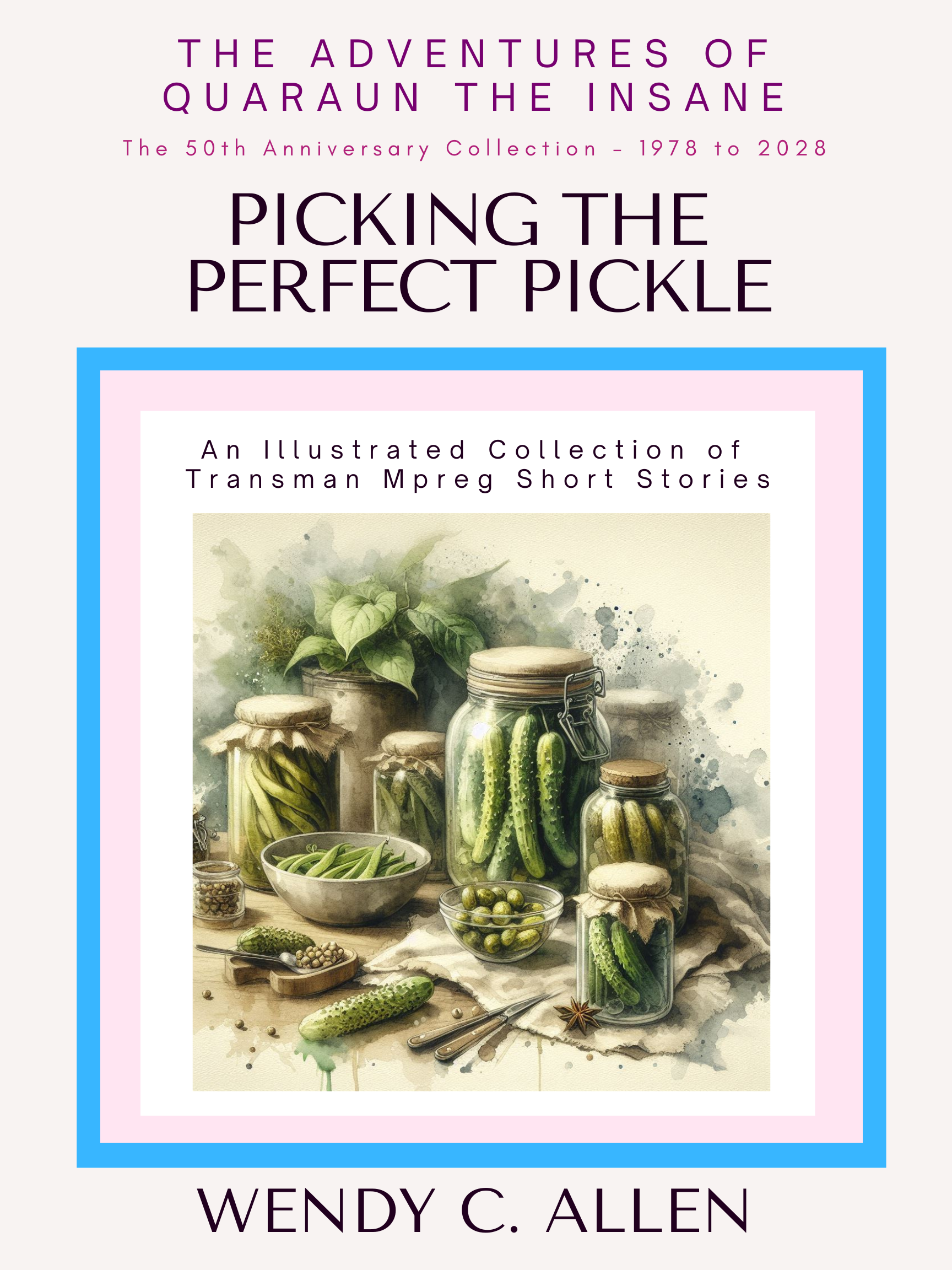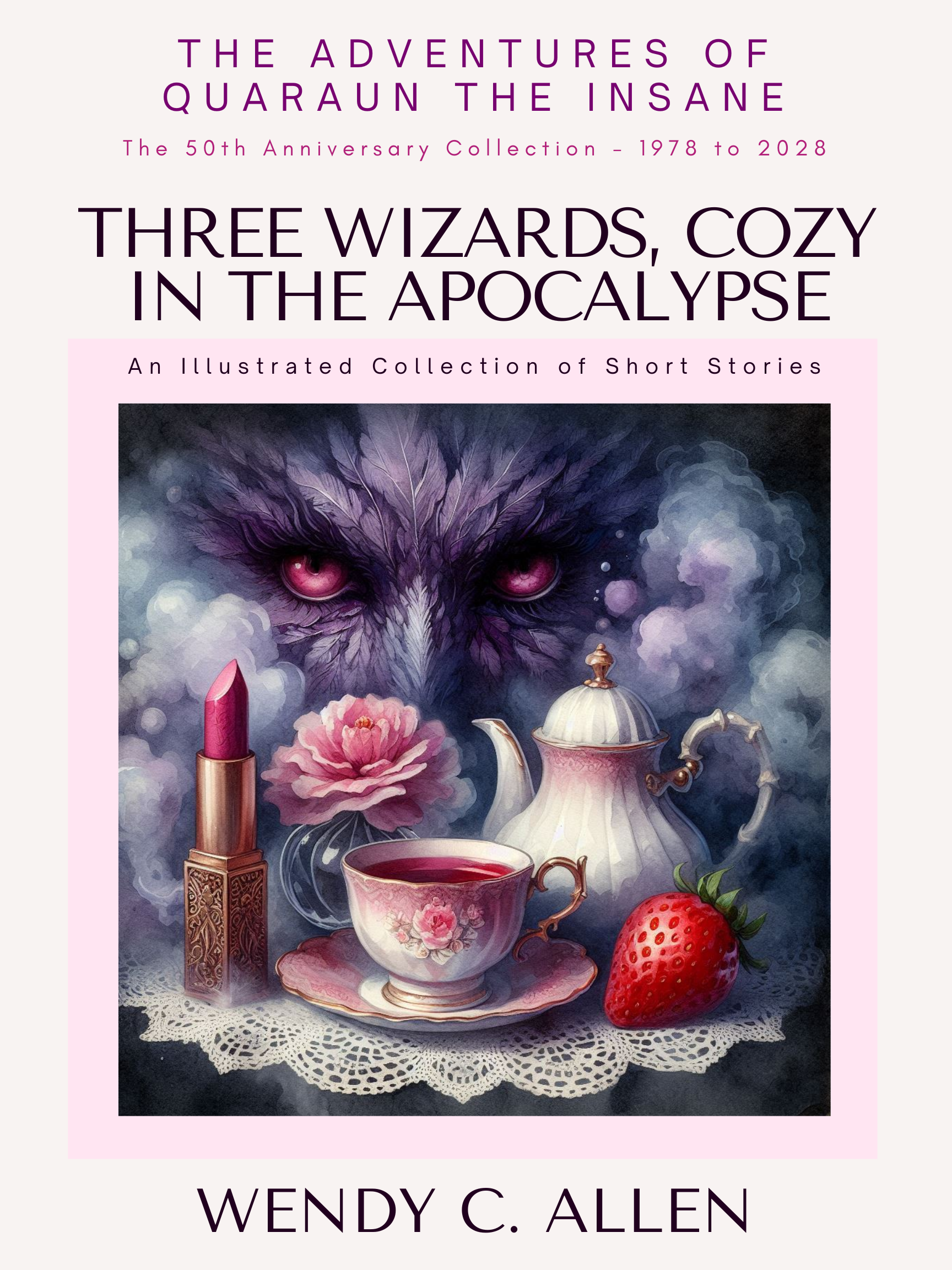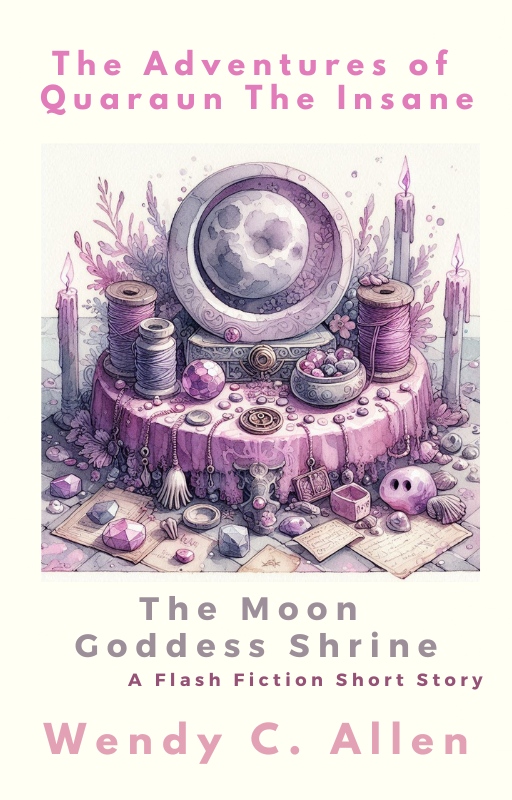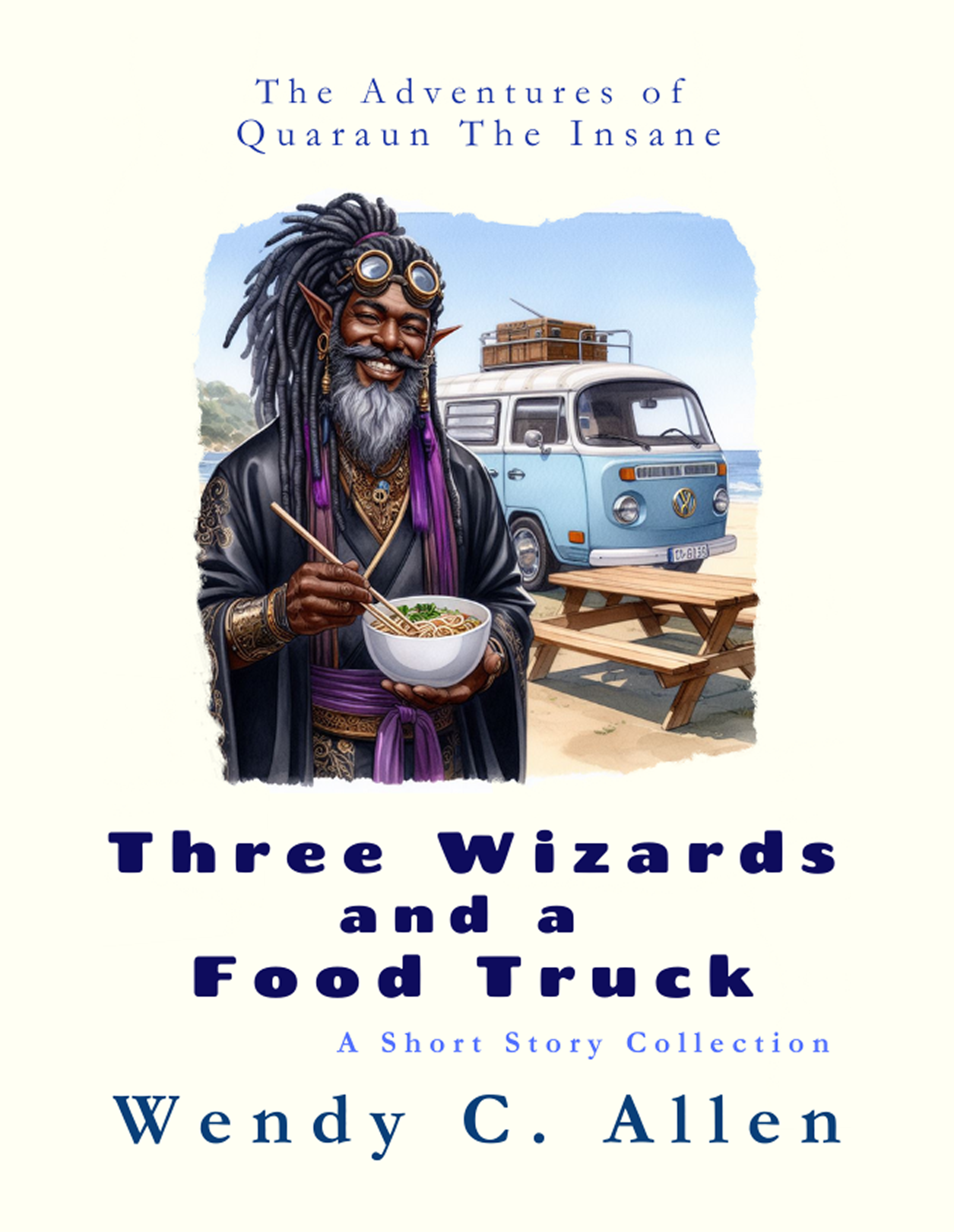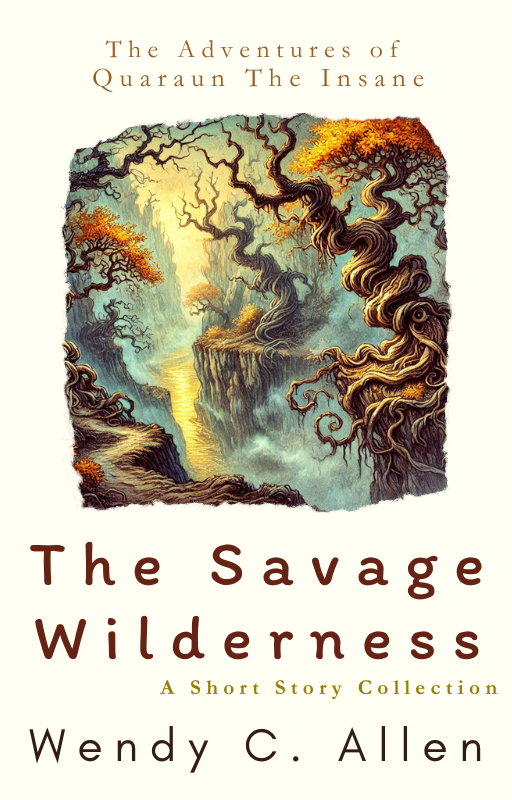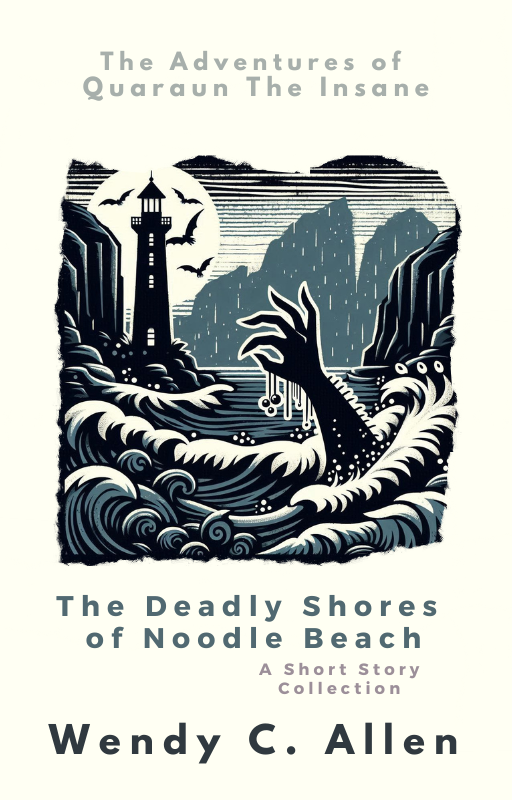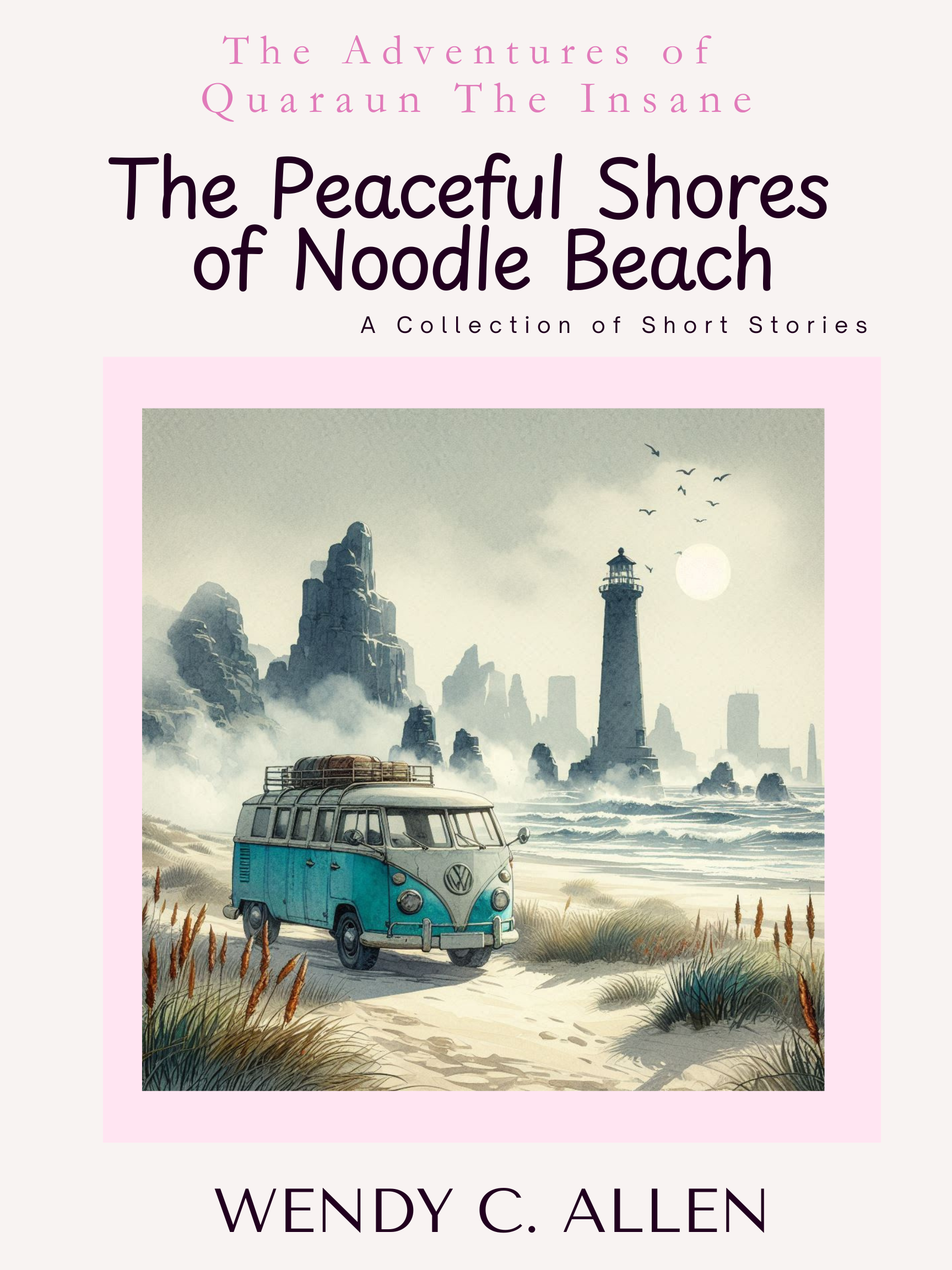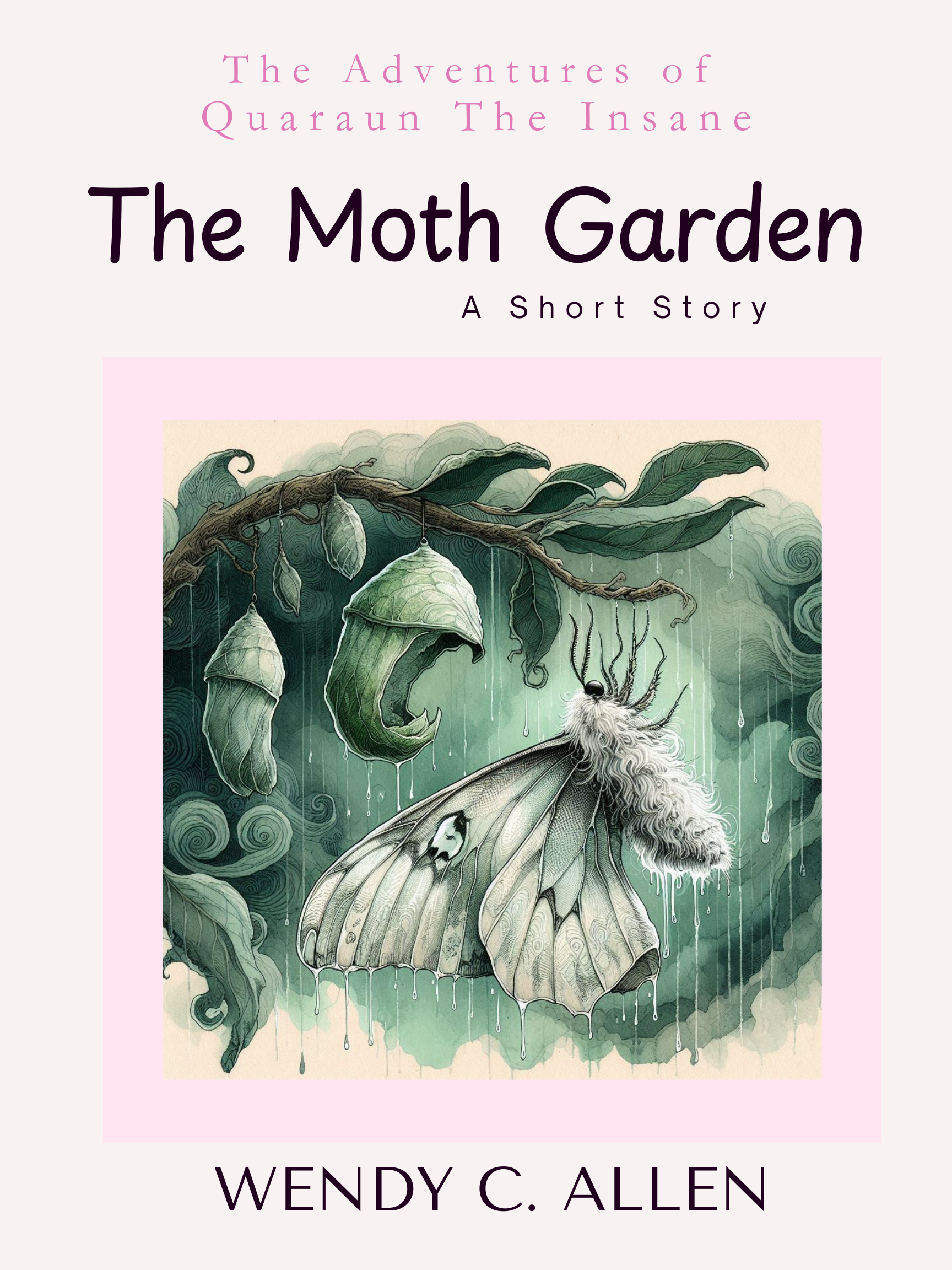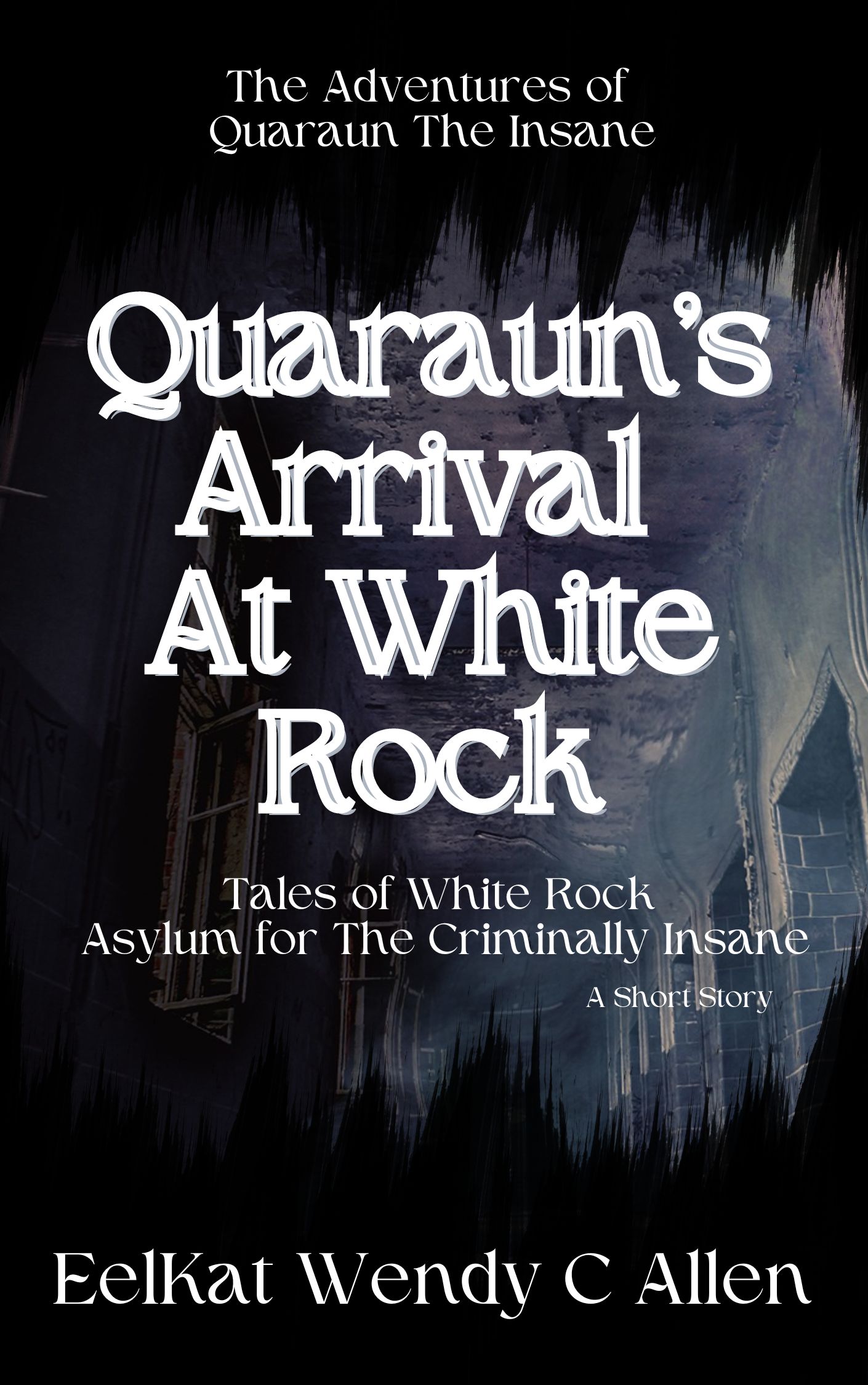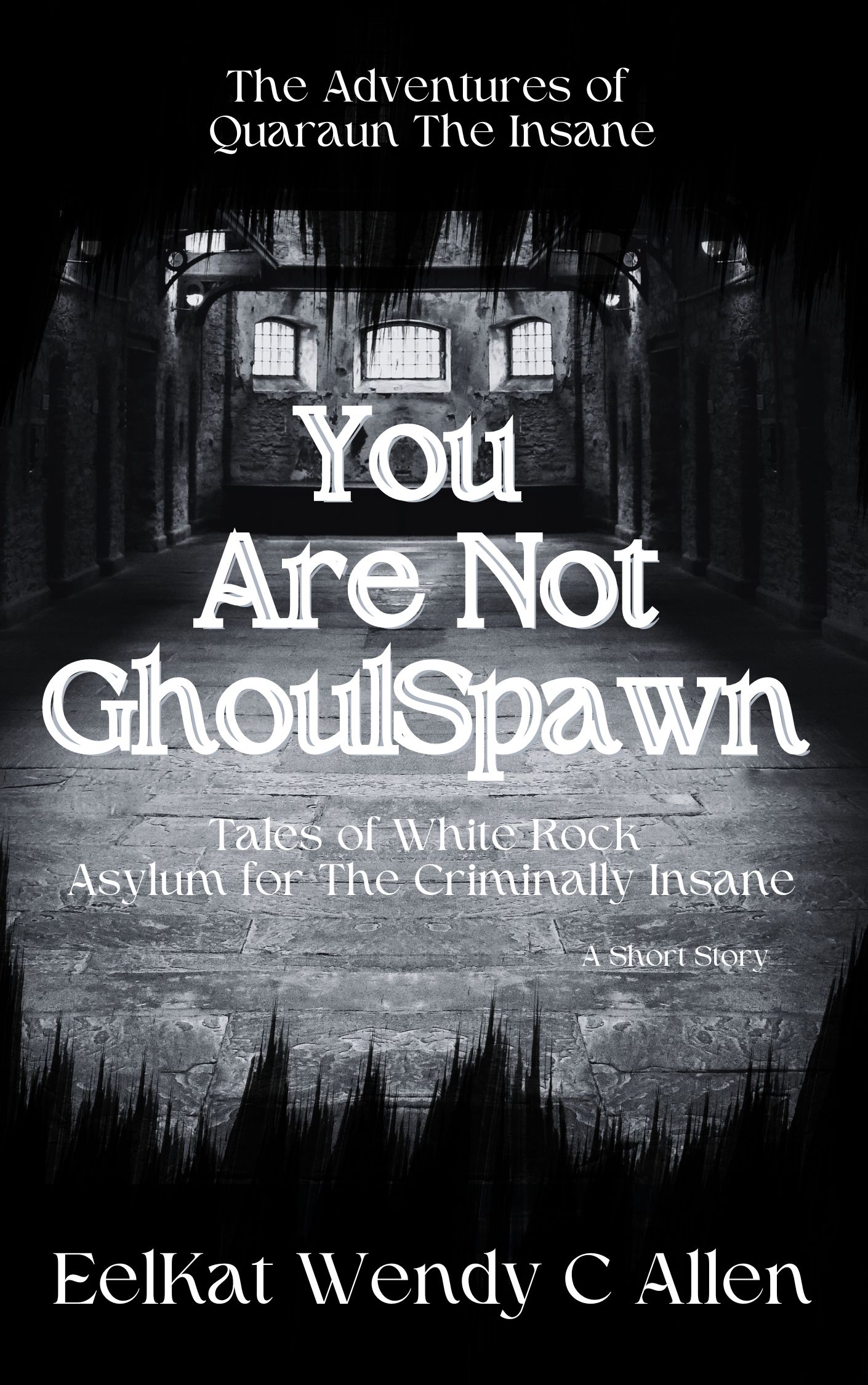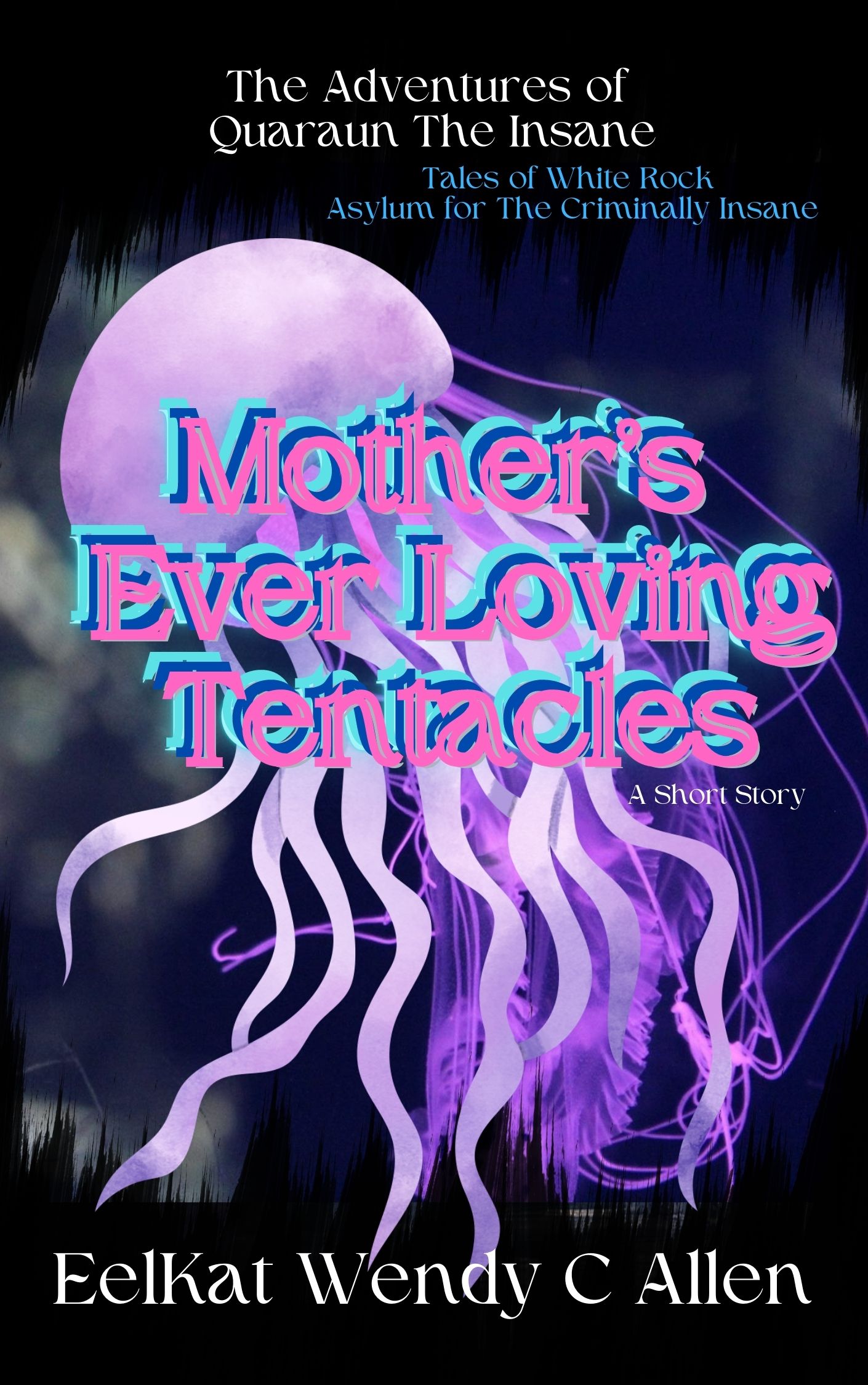Counting Down to the 2028 50th Anniversary of my first published book (September 23, 1978)
|
I am an author. I write Yaoi. This is my website. Yaoi means my main characters are gay lovers. If that bothers you, you're on the wrong website. Sorry.   Transman Quaraun (The Pink Necromancer) and his husband King Gwallmaic (aka BoomFuzzy the Unicorn) King of The UnSeelie Court. Main characters of The Adventures of The Pink Necromancer series. Transman Quaraun (The Pink Necromancer) and his husband King Gwallmaic (aka BoomFuzzy the Unicorn) King of The UnSeelie Court. Main characters of The Adventures of The Pink Necromancer series.
|
This website is a safe zone for LGBTQAI+, pagans, polys, trans, neurodivergent, disabled, mobile aid user, minority, cosplayers, otherkin, furries, & BIOPIC communities.
If you are a hater, you can go fuck yourself.
Happy 2026!
It is our 30th anniversary here at Space Dock 13!
On the web since 1996!
You have encountered an extremely old website that continues to exist in old web ways, the same way it has done for now three decades.
In spite of being now 30 years old this year, started in 1996, it is still heavily active and old pages updated daily, new pages added daily, still now in 2026. All hand written, all hand coded (no AI), all by me, same as it ever was.
We Still Exist: The Old Web Did Not Go Away, You Just Forgot How To Find Us
|
This site was NOT designed for mobile devices (as they had not been invented yet when I created it) thus this site looks best on a computer, at 1280x768 or above. |
This is a very old website created in 1996, so, yes, javascript is needed for the site to work as it should. If things don't function, you may need to update javascript drivers on your device |
This site tries to be mobile friendly but it's been online since 1996, so old pages may not load right on mobile devices, and as this site has had pages added near daily for 30 years there are now over 20k pages here. |
Having started out in life as a GeoCities site, this site contains glitter, bright colours, blinkies, moving gifs, and other things the old web was known for. |
EelKat On
Putting Off Writing
Until Tomorrow:
Procrastination:
After I read this book I’ll be ready to write....
Just one more book.
I swear, this is the last one,
then I'll write something.
One of my life’s ambitions is to write a series of fantasy novels and also a memoir. I journal five days a week and consider it suitable practice for a memoir somewhere down the line. I’ve been an avid reader my entire life and keep telling myself after I’ve read this series of books I’ll be ready to write a book of epic fantasy. The problem is my to-read list is seemingly never ending. As someone who thrives on routine I just wonder if I’m doing enough right now to someday reach my goal. What do you think? Also, what is your writing/reading routine like and how does it reflect your goals?
Writing advice from r/writing
>>Why is it that you're telling yourself that you need to read a large amount of books before you can write a novel?
I was wondering this same thing.
You want to know an interesting fact? I write Epic/High Fantasy novels. Have published 130 (one hundred and thirty) of them so far. Guess what? I've never in my life read a Fantasy novel. Not one.
Science Fiction on the other hand? I go through 2 or 3 Sci-Fi novels a week. I love Sci-Fi. But then, I'm not good at writing Sci-Fi at all.
>>As someone who thrives on routine I just wonder if I’m doing enough right now to someday reach my goal. What do you think?
I think if you are not writing daily, then you'll never write at all.

Some things to consider:
- Reading is not writing.
- Journaling is not fiction writing.
- Planning is not writing.
- Outlining is not writing.
- Worldbuilding is not writing.
- Researching history is not writing.
- Attending a lecture is not writing.
- Getting an English degree is not writing.
- Character creation is not writing.
- Studying how-to write books is not writing.
None of those things are going to improve your writing skills
None of those things is going to make you a better writer.
While all these things are skills an author will need to know how to do, none of them involves actual writing practice, and they are also all things an author can use to endlessly procrastinate, and before they know it, 40 years have gone by and they have stacks of journals, lots of books read, a huge world built, lots of amazing characters created, wonderful outlines charted, and not one single, solitary publishable novel written.
Only one thing counts as writing, and that surprisingly for most people, is writing.
If you want to be a writer of fiction stories, then you MUST write fiction stories, for this and only this, is going to prepare you for writing fiction.
In the intricate realm of writing, there exists a profound distinction between engaging in preparatory activities and the actual act of writing itself. While reading, journaling, planning, outlining, and various other facets of a writer's toolkit hold undeniable importance, they are the supporting pillars that surround and enrich the central foundation of the creative journey. It is the tactile act of writing—penning down words, weaving sentences, and crafting narratives—that forms the heart of becoming a proficient and accomplished writer.
Consider this creative process as a voyage across the boundless sea of imagination, where preparatory tasks are akin to charting maps, selecting supplies, and studying navigation techniques. These endeavors are essential for a successful journey, yet it is the voyage itself—the experience of setting sail, navigating uncharted waters, and facing the ebb and flow of tides—that truly shapes the seafarer's expertise.
In the context of writing, the truth remains unwavering: only by immersing oneself in the world of characters, breathing life into their experiences, and guiding them through the tapestry of the narrative can one fully harness the transformative power of storytelling. It is within the crafting of scenes, the development of dialogue, and the exploration of emotions that writers refine their storytelling skills and cultivate their unique literary voices.
Amid this dynamic interplay, it is crucial to remember that the sum of these creative endeavors is far greater than their individual parts. While the tools and techniques acquired serve as valuable companions, they find their true purpose in harmonizing with the ink-stained pages, heart-pounding plot twists, and soul-stirring character arcs that define the art of writing. This symphony of passion and purpose, when united, leads to stories that resonate deeply, leaving an indelible mark on both the writer and the world.
So, let the fire of passion for storytelling illuminate the path toward becoming a masterful writer. Embrace the voyage of crafting narratives, guided by the compass of imagination and steered by the pen's gentle touch. As the ink flows and the words dance upon the page, you will discover the essence of writing—the ability to create worlds, evoke emotions, and transport readers to places they've never dreamed possible.
>>what is your writing
I read a couple of novels a week. 2 usually, sometimes 3. Almost always Sci-Fi. I'm addicted to Star Trek books, so I go through them fast. Retief books by Keith Laumer, by far the best Sci-Fi out there. I do not write Sci-Fi though. I've tried, but for some reason I'm one of those people who can't write the genres I read. I start to read 10 or more novels a week and toss them aside before I reach the end of the first chapter. The author has to catch my attention fast or I don't waste my time on a book.
I'm a "career author" meaning writing (both fiction and non-fiction) is my full time job. I publish a novel (150k to 300k words each) a month, 2 short stories (4,000 to 30,000 words each) a week, 3 articles (2,000 to 4,000 words each) a day, I write at a speed of 91 words a minute (5,000 words an hour), type 17,000 words a day minimum on a slow day and frequently type in excess of 30,000 words a day; I do 500,000 words in 30 days for NaNoWriMo each year instead of 50,000, and average 3 million words published every year.
I published my first novel in 1978, this year is my 40th anniversary of being a published author. To date I have published 130+ novels, 2,000+ short stories, 10,200+ blog posts, 6,000+ non-fiction articles, 30+ non-fiction books, an autobiography, a few dozen stage plays, and also a few comic book scripts for Disney's Uncle Scrooge and Donald Duck comic books via their Egmont division in Denmark.
I'm considered a "hybrid author" as I both trade publish and self-publish side by side. I publish under 15 different pennames, and keep all of them separate from each other. I'm primarily a Yaoi author and teach writing workshops and lectures at comic book and geek conventions, where I also CosPlay my characters and do book signings, and am on the road more of the year then not because of this; I also own a small press publishing house and was for about 2 decades the editor in chief of two magazines.
That said... you could imagine a lot of my time is devoted to writing. I would not be able to keep up the publishing schedule I have, if I didn't adhere to a very strict and rigorous writing routine. I write on average 12 hours a day. Being able to write long hours like this requires discipline, motivation, properly budgeting your time, and having enough maturity to not goof off when one should be writing...not always easy, especially not on days when I take a break to play Witcher 3 Wild Hunt and then discover 10 hours have gone by (that game is so easy to get sucked into.) I have private agents, managers, stock brokers, and financial advisors who handle scheduling events, book signings, tour schedule, interviews, and managing finances - private as in, I'm their ONLY client, and when I go on the road, they go with me, my author schedule is THAT busy. I have a fleet of cars and motorhomes and a private mechanic who travels with us to keep them running.
When I say I'm a career author, a lot of people fail to grasp what exactly that means. I'll tell you what it means - it means I have an average of 30,000 screaming fan girls who arrive my drive way each and every year, and I have to have a body guard go with me to do my shopping at WalMart. Side effect of fellow local author Stephen King making not one, but two movies about me: Christine and Thinner, I'm the clan Queen of the Gypsies here in Maine, meaning I'm also the diplomate of Gypsy relations between the Americans and the Gypsies, and I own the world's most haunted car.
So... that's what I have to work around to get my writing done. Believe me, there is NO time for dilly-dally and reading novels is a luxury that I have to give up sleep for. I can also tell you things like writers block do not exist and are cry baby's way of procrastinating, harsh, yes, but very true, and any author who writes for a full time career is going to tell you the same thing. We who write full time, don't have time for writer's block. We kick writer's block in the balls and keep on writing anyways.
>>what is your writing/reading routine like and how does it reflect your goals?
Because writing is my full time job, I have the entire day devoted to it, plus I'm also a senior/elderly/retired so there are no children underfoot, no work or school in the way... in other words I have a lot more time now to write then I did when I started writing 4 decades ago. And that makes a big difference in my word counts.
When I was first getting started I used to struggle to reach 700 words a day, which was a combination of too many things in the way (school, work, family) and both not enough time, skill or practice at writing to yet be speed typing. (I took 4 semesters of secretarial typing and achieved a typing speed of 175 words per minute while in school, but rarely go faster then 91 words per minute since school (5,000 words per hour); I don't recommend speed typing without training as you can do serious damage to your wrist and finger muscles without doing proper warm up exercises first... think of it as the same as doing intensive gym work and needing to warm up first and then learn to do it in small steps over time. It took about 2 years of daily practice to learn how to speed type.)
That said, I currently average 17,000 words a day. Which is quite a big difference from my early days 40 years ago and struggling to reach 700 a day. This change is largely due to having more free time and now having better skill/training in the act of typing.
I strive to each day write 2 to 3 articles of 2,000 words each (6,000 words total), 1 new short story (4,000 to 7,000 words), and 1 to 3 new chapters of whatever current novel I'm working on.
I write in 3 four hour sessions per day, each session including a 15 minute break every 45 minutes; with a 1 to 2 hour break between each session. I then do a 4th session in the evening which is editing whatever I wrote that day.
Because I work in a sort of assembly line method, I'm also publishing 2 to 3 articles daily, 2 to 3 short stories weekly, and 3 to 4 novels a year. I publish around 3 million words a year. I'm also obviously doing this as a full time career, thus the rather grueling work schedule I have.
This often leads people to believe that I put less work into my novels then I do, because they falsely assume the novel I'm working on today, is the one I'll publish tomorrow. When in fact, each of my novels goes through, about 12 edits, and a minimum of 7 revisions, a process that takes an average of 4 years from the time I write the 1st draft to the time that draft is published.
This is my full time job, I spend 40 to 80 hours a week writing, editing, and publishing.
- 8 hours a day writing
- 4 hours a day editing/formatting/publishing
- 2 hours a day marketing (social media announcements, etc)
- 7 days a week
- I am trained in secretarial typing and my fastest clocked speed was 175 words per minute with an 80% accuracy.
I was a magazine editor for several years before blogging became my full time career
- I was a door to door sales representative for 16 years - a huge skill towards book marketing
- and I worked in retail merchandising as well
- I've been doing SEO marketing since 2007, and worked for Squidoo from 2007 to 2010, 600 of Squidoo's top 1,000 highest rated articles, were written by me
- my author homepage ranks #1 on page 1 of Google for 51 keywords, and in the top ten on page 1 for 300+ more keywords, with more 3,000 additional keywords ranking on pages 2 and 3, has 10,000+ how-to-write- advice articles on it, and gets 70,000+ visits a month
- The average visitor stays on each page for 12 minutes, and clicks through to 7 additional pages after leaving the first page they entered from.
- The average visitor: each person visits 7 pages per day and each person returns 3 days per week.
- I have a bounce rate of 73% visitors clicking additional pages after arriving and 27% leaving the site without clicking to another page (So a Bounce rate of 27% which is INSANELY low!)
What's the secret?
Time Management
- Writing to a schedule instead of focusing on word count
- Writing multiple times per day in small spurts
- Breaks - lots of them
- Hand exercises
- Walking/Getting up moving around
- A change in diet
- Those things combined, were the secret to my suddenly being about to write HUGE word counts per day, after struggling for years trying to reach even a few hundred words a day.
Here's what I did that worked for me:
I found that I do my most writing first thing in the morning, as in, as soon as I wake up, before getting out of bed. I just sit up and start typing. Well, that usually requires getting up and going to a desk, setting up, ect. And by that time I've lost my motivation. So, now the computer is right on the nightstand, and soon as I wake up, I start typing... don't even have to sit up, just put the keyboard on my lap, prop my knees up. Type straight up stream of consciousness. It may or may not make scene as I'm still half a sleep, but, it gets any ideas out of my head and on paper before I forget them.
This also acts as early morning exercise that gets the blood flowing through my fingers and acts as a warm up before I start doing my actual writing.
5AM: After getting up, eating, etc. Walk my dog. This gets the blood flowing everywhere.
7AM: Start typing. Doesn't matter what. If I can't think of anything for my current story, then work on a different story, or write a blog post, or write a non-fiction article, or go to Seventh Sanctum or Chaotic Shiny and use one of their writing prompts, anyone a random, and no matter what it gives me, just start writing about it. The point is to sit down and start typing and don't stop typing for 45 minutes straight of uninterrupted typing.
After 45 minutes, get up get a drink of water - drink an entire 16oz all at once. Eat something (apple, chips, broccoli, bagels, popcorn, cheese, M&Ms, pretzels, carrots, toast, whatever....didn't seem to matter what exactly it was as long as I've got something in my system.) Use bathroom. Walk around outside with my dog for 15 to 20 minutes. Get blood circulating through body again.
9AM: repeat as for 7AM, type 45 minutes, followed by 15 to 20 minute break as outlines above.
11AM: repeat as for 7AM
After 45 minutes. Take a long break. Drive to store, do any chores, cook dinner, etc.
4PM: repeat as for 7AM
7PM: repeat as for 7AM
9PM: Edit, revise, research, etc.
11PM: second long break, supper, movie time, etc. Go to bed.
The point is, to write in sessions, with each session divided up between drinking lots of water, eating, and getting up to move around.
I changed times around a lot before find one that worked for me.
For me, typing in 45 minute sessions with a 15 to 20 minute break every 45 minutes, and then 2 long 1 to 2 hour breaks during the day, worked best for me.
By doing this, I found that my hands don't tire out so easily, I don't get so sleepy, and I learned from some research studies done by various universities, that the reason I no longer get writer's block after starting this schedule, is because I'm now drinking 1 and 1/2 gallons of water a day, and that by being so very hydrated, my brain is better able to fire synapses, resulting in more fluid thought processes. (Apparently if you get dehydrated it causes your brain to respond sluggishly and causes writer's block, according to several various studies.)
People often look at me flying through NaNoWriMo zipping past 500,000 words in 30 days, and then try to do it as well.
DON'T!
Think of it like trying out for the Olympics. It's not something you jump into and do without training. A LOT of training. YEARS of training.
I'm trained for this. I write more then 50,000 words a week, every week, all year long. I'd be going backwards if I did a measly little 50k in 30 days for NaNoWriMo. That's not a goal for me. 50k a day, is a goal for me, but a month, no.
I took Basic Secretarial Typing, and Advanced Secretarial Typing 1, 2, and 3. I have 4 semesters of training in this type of high speed, long term typing.
That's how I got an average daily speed of 91 words a minute, almost 5,000 words an hour. Most days I type around 17,000 words a day, because I don't just sit and type the full 8 hours I'm working. In fact I spend a lot more hours a day editing, then I do full stream typing. Keeping in mind, I type with one hand. I had a stroke years ago, my left hand is basically useless. But I didn't always do this. I trained for it. A lot of years of classes and very hard training went into my reaching this point. Also remember, I published my first book 40 years ago, in 1978. I'm not new to this. When I started out I struggled to reach 500 words a day. 3 years after publishing my first novel, I still struggled to reach 700 words a day. It took me a long time and a lot of determined persistence to get where I am.
You can do it, yes. But don't plan on it happening overnight. Plan on training for years and years and years, seeing slow improvement over time. Take it slow and steady. Don't push yourself too fast. You have to build up your muscle strength. Hand muscles are fairly weak compared to the rest of your muscles. It takes them a lot of time to build up the strength for this kind of typing.
I've also have hand surgery 4 times in the past 5 years, have pulled my wrist muscles twice in each arm, in the past 7 years. Frequently have to go in for MRIs to check my bones for fractures. I have to wear wrist braces, most every day of my life, to support my muscles. You wrist muscles are not made for this type of output. Know that the authors who are putting out a lot of work fast, are also dealing with a lot of medical side effects caused by the high level of physical strain they put on their hands, wrists, and forearms.
If you plan to be publishing 4 or 5 novels a year, then definitely seek out the training, but if you only plan to write maybe 1 novel this year, perhaps another novel 5 years from now, don't.
Also, I work with beat sheets:
I'll write a scene between two characters sitting and talking about whatever, it's usually 2,000 to 4,000 words long. Then I'll write a different scene, same two characters, maybe they are walking to the market while they talk. Then I'll write another scene, same two characters, maybe this time they are getting ready for bed. I'll do this for 8 hours or so. I type 91 words a minute, so by the end of the day I'll have 5 to 10 of these little stand alone scenes, none of them really connected to any of the others. I'll repeat this several days for a few weeks. I'll end up 70 or 80 or 100 of these little scenes by the time I'm done. I'll put them all in a folder titled: "Scenes To Add To Manuscript".
Then, I'll go back, and I'll think up a story idea. Some random thing, like "What would happen if cultists took over a lighthouse and tried to summon a demon? And summoning a Demon involved them sacrificing 7 people, so suddenly a series of murders starts happening, and just as it does, some wandering wizard arrives in town." (That's the idea of the novel I'm currently editing right now. That idea resulted in a 300,000 word draft.)
Now I'll write up a quick quasi-"outline" that'll be one page and read something like (here's an actual outline I already had written up, so I'll use this, even though it doesn't match the story idea I just said.)
- Girl on cruise.
- Storm arrives.
- Girl wakes up on deserted island
- Hopes to be rescued
- Tide comes in, suddenly she realizes the island is more of a sandbar and is fast vanishing.
- Rescued/Captured by Were-Eel Merman (the EelMan which became my signature monster)
- Trapped in underwater cave with EelMan
- Tries to escape
- Finds cave in cave, EelMan won't let her near it
- Falls in love
- Sex
- Plans on happy ever after, forgets loverboy is not human and is very much a true monster
- Girl let's guard down
- Monster kills girl
- Cave in cave, is revealed to be a room full of human bones; all the ship wrecked humans he's eaten over the years
- Rescue party looking for survivors, finds girl's remains on beach, assumes she died in ship wreck
- The end
(That was the beat sheet outline for a 7,000 word short story I wrote went out as a freebie to my readers on October 16, 2004. And was made into a stage play in 2006.)
Then what I do it, I'll take the idea, and the quasi-outline, and next I'll go back to all those conversation/dialogue scenes I wrote and I read through them until I find 3 or 5 of them that fit my dea of where I want the story to go.
Now I'll take those conversation scenes, and I'll start rewriting them, expanding them, adding setting, maybe adding characters.
There's no point where I start writing the beginning and work to the end. It's just me, sort of looking at the entire story all at once and writing pieces here and there and putting them together.
I think the best way to describe it, is. it's like I have a big 1,000 piece jigsaw puzzle, and I take all the edges and put then together to build the frame of the puzzle, then I slowly fill in the pieces working my way to the centre, until I've put all the pieces in place.
It's like I have the beginning and I have the ending, but the entire middle is a discovery process along the way of figuring out what fits and what doesn't. I'll start out with maybe 3 of these conversation scenes around 4,000 words each, and add "bridging scenes" to connect them, continuing to expand them, and in the end, I'll have a novel 150,000 to 250,000 words long.
I don't know what exactly you would call this method of writing and I've never heard of anyone else doing anything quite like this, but that's how I do it. My weird scatterbrained process of writing a novel.
You'll often hear me talk about revising and rewriting, but I think, what I call rewriting, may not be what most others would consider rewriting? Not sure. It seems to me, when I see people saying they are rewriting, that they are actively writing their story over again, and for me, that's not what I do.
When I revise a novel, it' not so much me writing it over, as it is me continuing to snowball ideas at the story.
After I finish writing a novel, I like to put it away for 6 months minimum, before going back to edit it. These first drafts are usually very short only 70k to 80k words, barely the size of the finished novel it'll become when published, with most novels of the series being 140k to 200k words and some reaching over 300k. I'll immediately move on to my next novel. As it takes me about 2 to 3 weeks to write a "first draft", I'll have written 5 to 8 more novels by the time I go back 6 months later to edit that first one. I've now had time to forget a lot of what I wrote in this particular novel.
Now it comes time to "re-write" the novel. My process is this:
I read the novel, and as I read it, I'm now thinking of the additional 6 or 7 new novels I've written for the series since writing this one I'm now editing. I'll realize "Wait... did I have him doing this in that one? But I have him doing that over here in this one instead. That's not right. He can't do both. Can he? I gotta change one of these."
I'm now off to read the novels already published, read the drafts written before the one I'm editing, read the drafts written after the one I'm editing, and am now writing new scenes for this draft, in order to match up the chronology and consistency of the series as a whole. I'm now looking for plot holes and lose ends to tie up. I'm looking for places where what he did in the already published volume 22 does not match up with the now being edited volume 122. I'm writing new scenes to fix these inconsistencies and making old story lines match up with new story lines.
Keep in mind that the series in question, was started in 1978, has 130+ novels already published, and has a grand total of 275 novels in the series already started, with me currently working on 81 volumes in various stages of completion. And the way I write this series, it'll likely pass 400+ novels published over the next couple of decades, seeing how I have no plans to ever stop writing it, am writing new novels (150k to 300k words each) at a rate of 10 to 12 a year, and will probably keep right on writing into my 90s.
As I am doing this consistency checking process, I'm also STILL asking those "What if?" questions and so, new scenes start being written into the story, often resulting in very dramatic changes in the story line. I consider the 70k first draft to be nothing but a bare bones skeleton, completely lacking in meat, and this process of writing new scenes to answer the "What ifs?" to be the process of fleshing out the story and putting meat on the bones. So in an essence the first draft was actually an outline written in story form, and it is now evolving into the true story that will go on to be published.
The editing process after this point, consists largely of spell checking, grammar correcting, and combing for typos. I'm currently using 3 different editing programs for this, but I used to have 7 different programs I was using. (I got a new computer and have not yet bought new versions of the remaining 4 programs.)
In the end my process is this:
- A first draft written in fast free flow, often written in a single weekend, that acts as an outline for the novel. (Done in EditPad7)
- A revision/2nd draft written in a slower, more well thought out manner, usually taking 2 or 3 or more months to complete. (Done in yWriter5)
- 3 to 7 edits via editing programs, counting as drafts 3 through 6 or 3 through 10. (Done in LibreOffice5)
- A editor taking a look and a final draft being made via those suggestions. (I used to use beta readers, but haven't in nearly a decade.) (Sent to the editor vis Google Docs)
- A manual eyeballing it while I format it for publication, edit. (Done in LibreOffice5)
- Order the printed proof copy, and do the final edit, red sharpie on printed page, then typing those changes into the final draft.
The end result is a grand total of 12 drafts being made of each novel from start to finish.
what is your writing/reading routine like and how does it reflect your goals?
Well, that's it right there.
You can't do the pace or schedual I do, if you have work, school, or children in your life, so keep that in mind when comparing what I do to what others do. This kind of work load is not for every one, and if you only planning to write as a hobby or only planning to publish 1 or 2 novels here or there, then my kind of schedule is certainly not a right fit. You'd only want to try something like this, if you were planning to have the same type of goals I have, which involve constant daily output, lots of stuff published on a daily/weekly/monthly basis year round and being on the road at shows and conventions all year. It's not for everyone, and it's probably not for most people on this subreddit as it seems the bulk of members are more hobby writers, so a lot of this info probably won't be useful for a lot of members here, but if any one did have the goal for this kind of career in writing, well, this is the kind of work load you can expect to have to set up for yourself.
Hope that helps.
This page was written by Wendy Christine Allen of 146 Portland Ave, Old Orchard Beach, Maine.
All Rights Reserved.
While there are around 20k pages on this website, most of them are blocked from search engines, with only around 800 of them available for appearing in Google/Bing/etc search results. The remainder can only be accessed via the various links found throughout this site. This was done deliberately on my part, and I did it because the bulk of the pages on this website are chapters from 138 novels and 423 novellas, so only the first page of each novel and novella indexed by search engines, and the remainder are linked in order, one page at a time, via clicking "next page" at the end of each. So if you are looking for a specific page from a specific novel, Google can't help you.
|
Thank you for stopping by and have a nice day! ꧁✨🌸🔮🦄🔮🌸✨꧂ And if it’s your birthday today: ִֶָ𓂃 ࣪˖ ִֶָ🐇་༘࿐꧁ᴴᵃᵖᵖʸ☆ᵇⁱʳᵗʰᵈᵃʸ꧂🤍🎀🧸🌷🍭 |
 |
Get an email whenever Wendy Christine Allen 🌸💖🦄 aka EelKat 🧿💛🔮👻 publishes on Medium.
I also write on these locations: | Amazon | Blogger | GumRoad | Medium | Notd | OnlyFans | Tumblr | Vocal |
Important:
Fraudulent sites are impersonating Wendy Christine Allen.
- The ONLY official website for Wendy Christine Allen is www.eelkat.com
Fraudulent social media accounts, particularly on Reddit and FaceBook are impersonating Wendy Christine Allen.
- The ONLY official social media accounts for Wendy Christine Allen are listed in the footer here at www.eelkat.com
Find Me on Social Media:
- Amazon: Author Central
- Amazon: Quaraun Series Index
- Blogger
- CafePress
- DeviantArt
- FaceBook (Profile)
- FictionPress
- Gravatar
- GumRoad
- Lemon8
- Medium
- Notd
- OnlyFans
- PayPal
- Reddit 1 (Primary)
- Reddit 2 (Alt; Archived)
- SpoonFlower
- TikTok
- Tumblr
- Twitch
- Twitter (X)
- Vocal
- WordPress
- YouTube
- YouTube Shorts
- Zazzle: My Art
- Zazzle: Quaraun Merch
Any websites and accounts you find online that are NOT on this list are NOT Wendy Christine Allen
